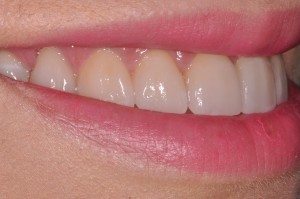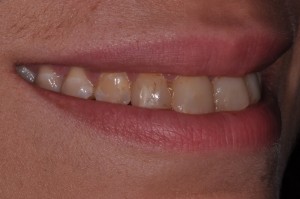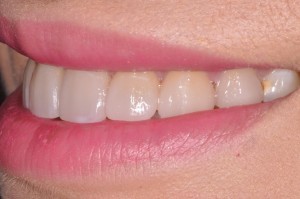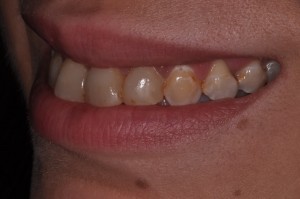Does getting a dental implant hurt?
February 2nd, 2016

Getting a dental implant is a surgical procedure and everyone’s pain tolerance level is different. Therefore, what one person may perceive as pain is only a slight discomfort for another person. The general consensus about pain and dental implants is that the majority of people feel discomfort, not pain.
A dental implant is a complex procedure. Let’s take a look at what may cause discomfort:
- Some people may find that having the IV put in is uncomfortable, especially if the healthcare worker has to try more than once. If you have a fear of needles or if you have anxiety about the procedure, we can prescribe a sedative, which you take before you arrive.
- Of course, during the dental implant surgery, you will be asleep. Therefore, you will not feel any pain or discomfort at all.
- When you awake from the surgery, your mouth should still be numb. In many cases, we can give you a “block” – it is basically a 24-hour pain medication, so you will not feel any pain or discomfort at all.
- We will also provide you with a prescription for a strong pain killer, and you will most likely sleep while you are taking them. If you are still in pain, do not take more than is prescribed without calling us first. You will need someone to stay with you for 24 hours after the surgery, and they will be instructed on how to give you any prescription medication. The anesthesia tends to make people a bit loopy and forgetful the first 24 hours.
- After the first 24 hours you may feel some discomfort. The most important thing you can do is take your pain medication regularly, whether you are taking the prescription medication or an over-the-counter pain reliever such as Tylenol or Advil.
- You should not need pain medication for more than the first few days.
Most people do say there mouth is sore and they have to be careful what they eat, so it’s best to stick to soft foods. If you have any additional questions, please contact our Marysville, WA office and speak with Dr. Kelly Peterson.
















 Website Powered by Sesame 24-7™
Website Powered by Sesame 24-7™